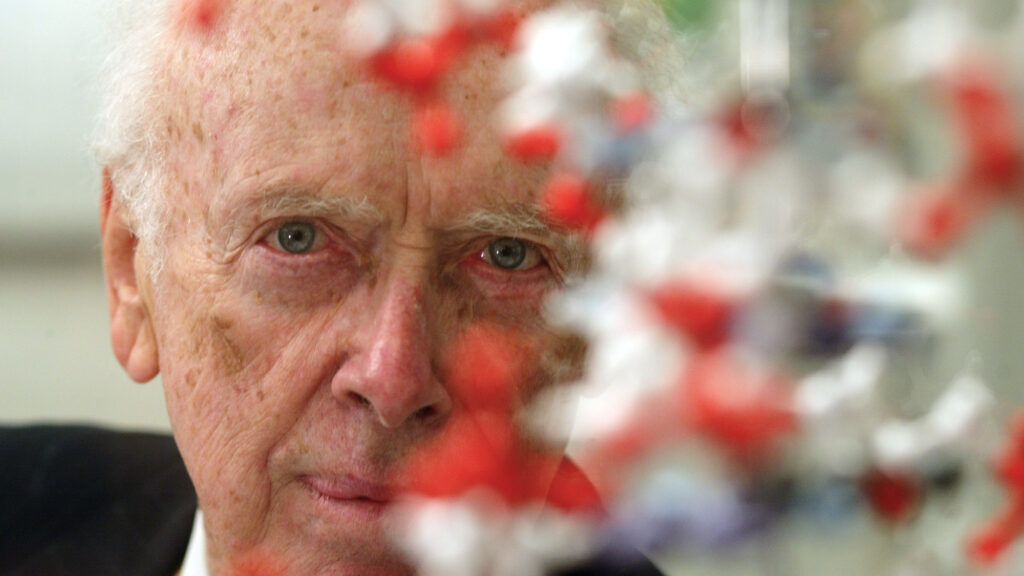Biologist James Watson, who co-discovered the structure of DNA, passed away on October 19, 2023, at the age of 97. His death signifies not only the loss of a pivotal figure in modern biology but also the conclusion of an era that witnessed transformative advancements in genetic research. Watson’s legacy is multifaceted, marked by his groundbreaking scientific achievements as well as his later controversial views, which left him alienated from many of his peers.
Watson, alongside Francis Crick, announced the discovery of the DNA double helix in 1953, a monumental breakthrough that laid the foundation for genetic science. The duo’s work earned them the Nobel Prize in Physiology or Medicine in 1962. Beyond this achievement, Watson was instrumental in advancing molecular biology at Harvard University during the 1970s and led the Cold Spring Harbor Laboratory in New York from 1968 to 2007, enhancing its reputation as a leading research institution in genetics and cancer.
His involvement in the Human Genome Project from 1990 as its first director showcased his commitment to unraveling the complexities of human genetics, despite facing criticism from some quarters of the scientific community. Watson’s contributions were undeniably significant, earning him a revered place in the annals of science.
Controversial Statements and Pariah Status
Despite his scientific accomplishments, Watson’s later years were overshadowed by a series of controversial statements regarding race and gender. In 2007, he expressed pessimistic views about the intelligence of people from Africa in an interview with a British newspaper, igniting widespread outrage. He remarked that social policies assume equality in intelligence, while “all the testing says not really.” This statement, among others, marked a turning point in his public perception and ultimately led to his ostracization from many academic circles.
Watson’s views were not an isolated incident. In his memoir, “Avoid Boring People: Lessons from a Life in Science,” he reiterated his belief that there is no reason to expect equal intellectual capacities among different races. His comments on women in science echoed similar sentiments, suggesting that nature might influence the representation of genders in scientific fields. These assertions drew condemnation from colleagues and resulted in a significant decline in his standing within the scientific community.
His friend and fellow biologist Nancy Hopkins from the Massachusetts Institute of Technology expressed her bewilderment at Watson’s transformation over the years. Once a supporter of women in science, his later insistence on apologizing to Lawrence Summers, the then-president of Harvard, for opposing his views on women in science signaled a stark shift in Watson’s perspective.
A Complex Legacy
Watson’s scientific brilliance was often overshadowed by his contentious views. His earlier triumphs, including the double-helix discovery, may have inflated his belief in his own genius, leading to a disregard for established scientific consensus. Colleagues noted that his early success at the age of 25 might have contributed to his subsequent failures in research. Although he led some significant projects, including the transformation of the biology department at Harvard, his subsequent work did not yield comparable results.
By the 1990s, Watson’s relevance in the scientific community began to wane. Yet, he maintained a belief in his superiority, which was further exacerbated by his fixation on the controversial book “The Bell Curve,” which posited a genetics-based theory of intelligence. His continued advocacy for its discredited ideas further alienated him from the scientific mainstream.
As his views became more extreme, Watson faced increasing isolation. Cold Spring Harbor Laboratory severed ties with him following his continued public statements, which the institution condemned as “unsubstantiated and reckless.” Despite the backlash, Watson remained steadfast in his beliefs, refusing to reconsider his stance even as criticism mounted.
Watson’s later years were marked by resentment toward the scientific community that once revered him. His determination to voice controversial opinions may have been an attempt to reclaim relevance in a landscape that had shifted away from his ideas.
In his final days, Watson appeared to care about how history would judge him. Despite the tarnished legacy, he faced the end with a resolute stance on his beliefs, leaving behind a complex legacy that intertwines groundbreaking scientific achievement with deeply divisive views. As the scientific community reflects on his life, Watson stands as both a pioneer and a cautionary tale of how personal beliefs can overshadow professional accomplishments.





































































